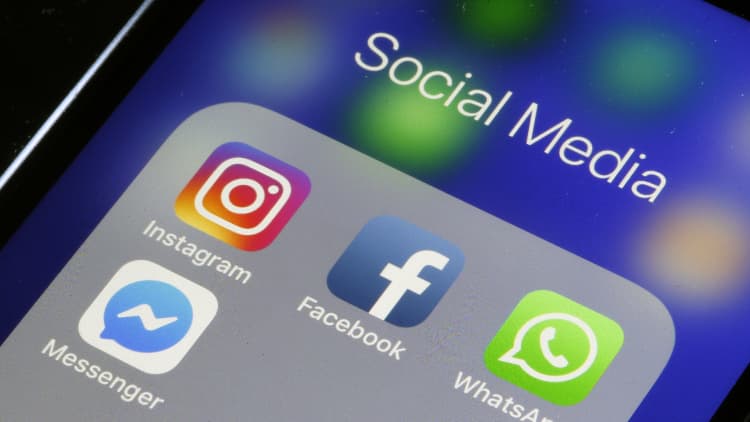The state attorney general leading a broad antitrust investigation into Google is accusing the tech giant of delaying the case and vowed to see it through to the end.
In an interview with CNBC on Wednesday, Texas Attorney General Ken Paxton pointed to Google's attempts to prevent the state from using certain outside consultants as one delay tactic. And Paxton said he's willing to take a more aggressive stance as a result.
"They're pushing us towards a fight," Paxton told CNBC. "We don't necessarily want one. But we won't back off if they're not going to cooperate."
Google has said it objected to three consultants because they worked for competitors, including Microsoft and News Corp, and that it wants to ensure any documents they review remain confidential.
"We have been working constructively with the Texas attorney general and have produced a substantial volume of information in response to his inquiry even as we seek assurances that our confidential business information won't be shared with competitors or vocal complainants," a Google spokesperson said.
Texas announced its investigation into Google in September of last year on the steps of the U.S. Supreme Court, backed by 49 attorneys general from nearly every state and territory in the country. Paxton told CNBC his team is focused on Google's ad business, while other states are looking into a range of additional anticompetitive complaints. CNBC reported last fall that some state attorneys general have expanded their probes to look into Google's Android and search businesses.
"We don't want this to drag out. We want to get it going," Paxton said. "We don't want the technology to pass us by so that by the time we get to any kind of resolution, it doesn't matter."
On Tuesday, Paxton and several other state AGs, including Doug Peterson of Nebraska and Sean Reyes of Utah, met with top officials at the Justice Department, which is also investigating Google.
"I think they made it very clear that they're focused," Paxton said of the DOJ. "This isn't just a little side project. They've dedicated significant resources to look into this."
Part of the purpose of the meeting was to connect with the DOJ's new leadership team, Paxton said. The department's top antitrust official, Makan Delrahim, recused himself this week from the inquiry into Google. Delrahim previously lobbied for Google during its acquisition of the advertising technology company DoubleClick, a position that has been criticized by lawmakers and activists as a conflict of interest. The DOJ said that Delrahim's decision was made out of "an abundance of caution."
Paxton would not discuss whether the states would eventually combine efforts with the DOJ. But he acknowledged that Google's vast resources put the states at a disadvantage.
"It seems like a strategy by Google: Let's just slow this down," he said. "We'll just make this drag out for years and years … We can just fund whatever it is, however long it takes."
Paxton said Google's level of cooperation will help determine the timeline for wrapping up the states' investigation. And he said he is keeping his options open after that.
"It all depends on what we find or don't find," he told CNBC. "I wouldn't take any offer off the table, from not doing any lawsuit to doing some more — much more."


